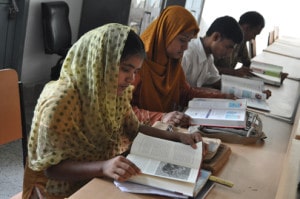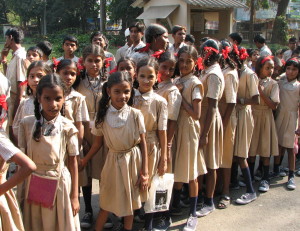
There are 1.4 million schools in India, around 25% of which are private schools. That is a huge market waiting to be explored, says Seliha Muvva, Director, Edukul India, which provides an interactive app and platform for the schools
Give us a brief of the various reasons behind starting the Edukul India.
Rearing two kids, I came to realise the huge communication gap between the teachers and the parents. The parents are unaware of whatever is happening in the school. At the same time, the teachers are completely exhausted. The schedule in the school is punishing. Reining in 30 children in a class is not a joke! Even kids, not to speak of others, have not got any secure platform to learn, connect and enjoy at the same time.
What are the various difficulties and hurdles in doing business on the ground level?
The schools are our customers. These institutions are like forts where the principal is the king. Getting across to meet them is the toughest job.
What is the market size of the services offered by you in India at present?
There are 1.4 million schools in India, around 25 per cent of which are private schools. That is a huge market waiting to be explored. We are targeting not only the desktop but, also the smart phone users.
What is the major benefit for organisations and individuals adopting your solutions?
It takes the teaching and learning experience to higher level. The teachers can individually connect with every student. For the teachers, it reduces the work load by simplifying the everyday tasks and even delegates some tasks to the parents. We are also the mobile first platform in education which will make the SMS packages obsolete for the schools.
What is the vision of your company for next two year?
Getting every teacher in India to use the Edukul app, designed only for a teacher, is my avowed objective. It will be launched in May.
What are the various methods you are using to increase the visibility of your organisation?
Although a few-months-old start up, we have successfully got the product tested in two schools. Now, we will work on increasing our visibility through digital marketing and print media.
How do you differentiate your services from your competitors?
We are the only ones in the market to provide an interactive app and platform for the schools.
How do you engage the customers? Can you cite any special case study?
We interact with the teachers and the students in the schools every week. A 10-year-old boy once came up to me during an interaction and told, “It is too slow. Fix it up faster as we get so much of work to do on Edukul”. It helped us move quickly and revamp the site.
What are the major stakeholders and sectors you are focussing on?
We are focussing on the education sector and reaching out to our stakeholders – parents, teachers and students through the schools.
What are the various initiatives taken by your organisation to emerge as a market leader?
Although we can’t disclose them as of now, yet we will certainly share the initiatives once we have emerged as the market leader in the education sector.
 In a first of its kind initiative, Andhra Pradesh government wants to make learning of Kuchipudi classical dance compulsory in all the state syllabus schools, including the private ones, from Class V to VIII, from the coming academic year.
In a first of its kind initiative, Andhra Pradesh government wants to make learning of Kuchipudi classical dance compulsory in all the state syllabus schools, including the private ones, from Class V to VIII, from the coming academic year.






























